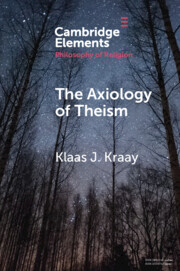Up to now, a very large majority of work in the religious philosophy of life's meaning has presumed a conception of God that is Abrahamic. In contrast, in this article I critically discuss some of the desirable and undesirable facets of Traditional African Religion's salient conceptions of God as they bear on meaning in life. Given an interest in a maximally meaningful life, and supposing meaning would come from fulfilling God's purpose for us, would it be reasonable to prefer God as characteristically conceived by African philosophers of religion to exist instead of the Abrahamic conception of God? At this stage of enquiry, I answer that, in respect of the range of people to whom God's purpose would apply, a more African view of God would plausibly offer a greater meaning, but that, concerning what the content of God's purpose would be, the Abrahamic view appears to offer a greater one. I conclude by reflecting on this mixed verdict and by suggesting respects in which non-purposive facets of the African and Abrahamic conceptions of God could also have implications for life's meaning.


